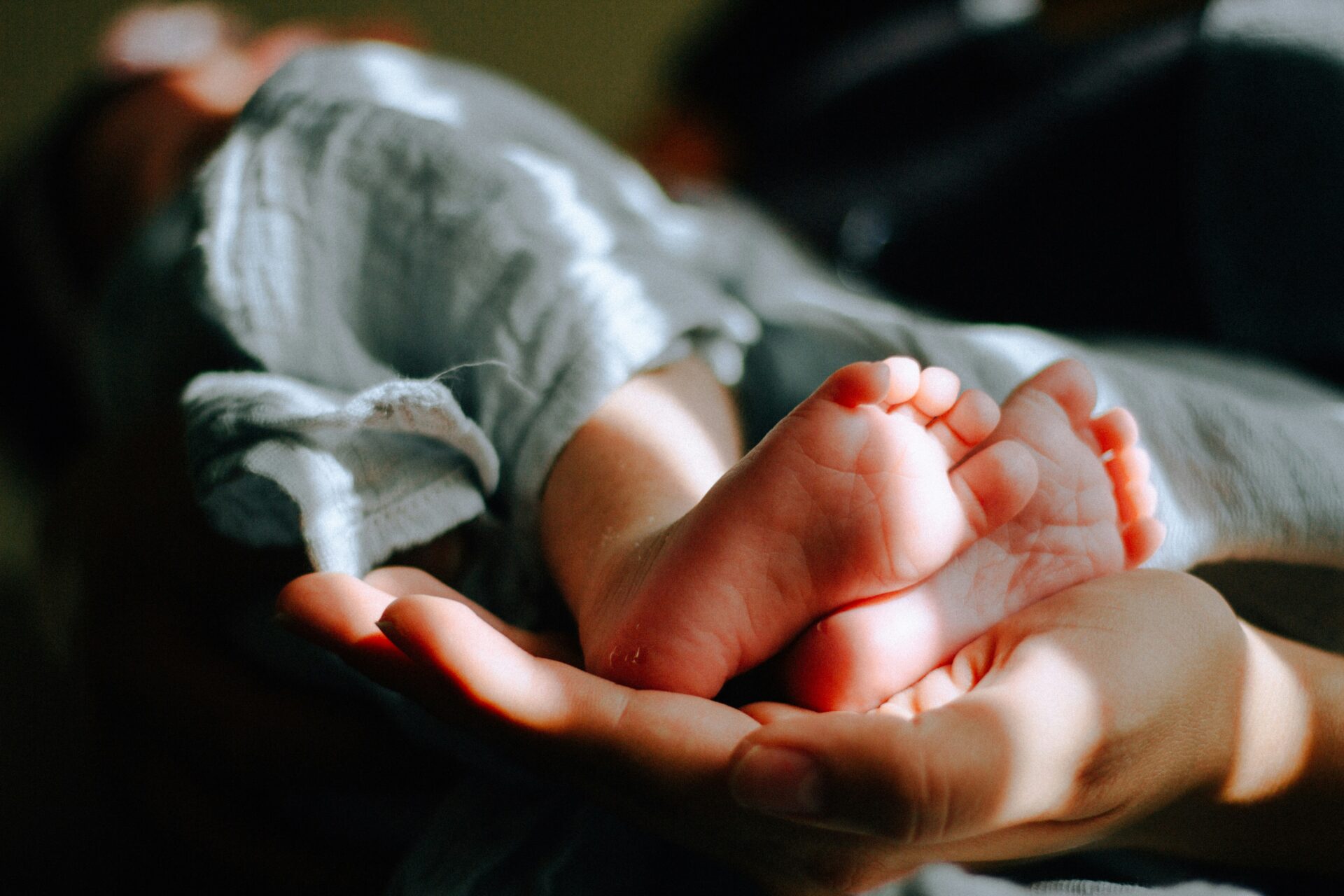Keeping your baby or toddler hydrated is crucial for their well-being, but it can sometimes be a challenge. As the weather gets warmer or your little one falls ill, ensuring they receive adequate fluids becomes even more important. In this article, we will explore simple yet effective ways to help your baby or toddler stay hydrated, keeping their thirst at bay and their playful spirits high. So, grab a glass of water for yourself, and let’s dive into some practical tips for keeping your little one healthy and hydrated.
Understanding the Importance of Hydration
When it comes to the health and well-being of your baby or toddler, hydration plays a crucial role. Water is essential for the proper functioning of their little bodies, and maintaining proper hydration is key for their overall health. As parents, it’s important to understand the significance of hydration in their development and take necessary steps to ensure they stay hydrated.
The Role of Hydration in a Baby’s or Toddler’s Health
Hydration is vital for babies and toddlers as their bodies are made up of a significant amount of water. It plays a crucial role in various bodily functions, including maintaining body temperature, aiding digestion, transporting nutrients, and eliminating waste. By keeping your little one adequately hydrated, you can help promote healthy growth and development, support their immune system, and prevent potential health complications.

This image is property of images.unsplash.com.
The Risks of Dehydration in Babies and Toddlers
Dehydration occurs when there is an inadequate amount of fluid in the body. For babies and toddlers, who have a higher water turnover rate and are more susceptible to losing fluids, the risk of dehydration is even more significant. Severe dehydration can lead to serious complications, such as electrolyte imbalances, urinary tract infections, and even heat stroke. It is important to be aware of the signs of dehydration in your little one so that you can take prompt action.
Signs of Dehydration in Babies and Toddlers
As babies and toddlers are not always able to verbally express their discomfort or thirst, it’s crucial to be vigilant and look out for signs of dehydration. Some common signs to watch out for include:
– Decreased urine output
If you notice a significant decrease in the number of wet diapers or urine output, it could be a warning sign of dehydration. Monitoring your baby’s diaper and paying attention to their urine color and frequency can help you gauge their hydration status.
– Dry mouth and lips
Dry mouth and lips are often early signs of dehydration. You may notice that your little one’s mouth appears dry, and their lips may become chapped or cracked.
– No tears when crying
Babies have tears in their eye ducts to help keep their eyes moisturized. If your baby or toddler is crying excessively but not producing tears, it may indicate dehydration.
– Sunken fontanelle (soft spot on the baby’s head)
The fontanelle, or soft spot, on a baby’s head is an area where the skull bones have yet to fuse. If you notice that the fontanelle appears sunken, it may indicate dehydration. However, it’s important to note that a slightly sunken fontanelle is not always a cause for concern, as it can be a normal variation.
– Lethargy or fussiness
Dehydration can cause your baby or toddler to become unusually lethargic or fussy. They may lack their usual energy and seem tired or agitated.
– Darker urine color
Dark yellow or amber-colored urine is often a sign that your little one is dehydrated. In a well-hydrated child, urine should be pale yellow or nearly colorless.
– Sunken eyes
Dehydration can cause the eyes to appear sunken or hollowed. Keep an eye out for any changes in your baby or toddler’s eye appearance.
– Dry skin
Dehydration can make your baby or toddler’s skin appear dry, flaky, or less elastic. Pay attention to their skin texture and make sure to keep it moisturized to prevent further dehydration.
If you notice any of these signs of dehydration in your baby or toddler, it’s important to take immediate action to rehydrate them and seek medical advice if necessary.

This image is property of images.unsplash.com.
Providing Sufficient Fluids
Ensuring that your baby or toddler stays properly hydrated requires a conscious effort on your part as a parent. Here are some practical tips to provide sufficient fluids to your little one:
– Breastfeeding or formula feeding
If your baby is under six months old, breast milk or formula will be their main source of hydration. Breastfeeding provides both nutrition and hydration, so make sure to feed your baby on demand or according to a schedule recommended by your healthcare professional. If you are formula feeding, carefully follow the instructions for preparing and feeding formula.
– Offering water between feedings
Once your baby reaches six months of age and begins eating solid foods, you can start offering small amounts of water between feedings. This can help quench their thirst and provide additional hydration.
– Avoiding sugary drinks
It’s important to avoid offering sugary drinks, such as fruit juices or sweetened beverages, to babies and toddlers. These drinks can not only provide empty calories and contribute to tooth decay but can also interfere with their overall hydration. Stick to water as the main beverage for hydration purposes.
– Creating a daily drinking routine
Establishing a daily drinking routine can help ensure that your little one stays hydrated throughout the day. Offer small amounts of water at regular intervals and encourage them to drink. Making water a regular part of their daily routine can help instill healthy habits and promote proper hydration.
– Monitoring diaper output
Monitoring your baby’s diaper output can serve as a helpful indication of their hydration status. Keeping track of the number of wet diapers and the color of their urine can provide valuable insights into their hydration levels. If you notice a significant decrease or any abnormalities, consult with your healthcare professional.
Choosing the Right Beverages
As your baby or toddler progresses through different stages of development, the choice of beverages can vary. Here are some guidelines to help you choose the right beverages for your little one:
– Breast milk or formula as the main source of hydration
For infants under one year old, breast milk or formula should be their primary source of hydration. These provide the necessary nutrients and hydration to support their growth and development. Breastfeeding or formula feeding on demand will ensure that your baby receives the appropriate amount of fluids.
– Introducing water as a supplemental drink
Once your baby is six months or older and starts eating solid foods, you can introduce water as a supplemental drink. Offer small amounts of water between meals or whenever your little one seems thirsty. This will help keep them hydrated and maintain a proper fluid balance.
– Avoiding fruit juices before 1 year of age
While fruits are a healthy part of a baby’s diet, it’s important to avoid offering fruit juices before their first birthday. Fruit juices can be high in natural sugars and may contribute to tooth decay and obesity. It’s best to stick to whole fruits and offer water as the main beverage.
– Limiting cow’s milk intake for toddlers
Once your baby transitions to a toddler, cow’s milk can be introduced as a part of their diet. However, it’s important to limit their intake to no more than 16-24 ounces per day. Consuming excessive amounts of cow’s milk can reduce their appetite for other nutrient-rich foods and may lead to iron deficiency anemia.

This image is property of images.unsplash.com.
Hydrating Foods for Babies and Toddlers
In addition to fluids, you can also provide hydration to your baby or toddler through their diet. Including water-rich foods can offer a dual benefit of hydration and nutrition. Here are some hydrating food options you can introduce:
– Introducing water-rich fruits and vegetables
Water-rich fruits and vegetables, such as watermelon, cucumbers, strawberries, and grapes, can be great options to incorporate in your baby or toddler’s diet. These foods have a high water content and can help keep them hydrated while also providing essential vitamins and minerals.
– Soups, broths, and purees with high water content
Soups, broths, and purees made with water-rich ingredients can also provide hydration to your little one. Vegetable soups or purees are not only delicious but can also contribute to their overall fluid intake.
– Yogurt and other dairy products
Yogurt and other dairy products can also contribute to your baby or toddler’s hydration. These foods contain a fair amount of water and provide essential nutrients like calcium and protein. Opt for unsweetened or low-sugar varieties to minimize unnecessary calorie intake.
– Cucumbers, celery, and melons
Cucumbers, celery, and melons are hydrating foods that can be easily included in your baby or toddler’s meals. These foods are not only refreshing but also packed with water, making them an excellent choice for maintaining hydration levels.
Encouraging Fluid Intake
Getting your baby or toddler to drink enough fluids can sometimes be a challenge. However, there are several strategies you can employ to encourage their fluid intake:
– Using sippy cups or open cups
As your little one transitions from bottle feeding to drinking from a cup, consider using sippy cups or open cups. These can make drinking more manageable for them and allow them to practice their self-drinking skills.
– Offering fluids throughout the day
Don’t wait until your baby or toddler appears thirsty to offer fluids. Instead, make it a habit to offer small amounts of water throughout the day. This will ensure that they stay hydrated without feeling overwhelmed by a large volume of liquid at once.
– Making fluids easily accessible
Keep water easily accessible for your baby or toddler. Place a filled water bottle or cup within their reach so that they can easily access it whenever they feel thirsty. This can promote independence and encourage them to self-hydrate.
– Using fun and colorful cups
Make drinking water more enjoyable for your little one by using fun and colorful cups. Opt for cups with their favorite characters or attractive designs that will catch their attention and make drinking more exciting.
– Being a role model
Children often mimic the behaviors of those around them, so be a role model for them when it comes to hydration. Drink water in their presence and let them observe you staying hydrated. This can encourage them to follow suit and develop healthy hydration habits.
Hydration Tips for Hot Weather
When the temperature rises, it’s especially important to take extra precautions to keep your baby or toddler hydrated. Here are some tips to help you navigate hot weather and prevent dehydration:
– Avoiding excessive sun exposure
Limit your baby or toddler’s exposure to direct sunlight during peak hours when the temperature is the highest. The sun’s rays can increase the risk of dehydration, so opt for shaded areas or indoor activities when the heat is intense.
– Dressing infants and toddlers in lightweight clothing
Choose lightweight, breathable clothing for your little one to wear during hot weather. Loose-fitting garments made from natural fibers like cotton can help keep them cool and prevent excess sweating.
– Using sunscreen properly
To protect your baby or toddler’s delicate skin from sunburn, always apply sunscreen before heading outside. Look for a broad-spectrum sunscreen with an SPF of 30 or above and apply it generously. Reapply every two hours or more frequently if they are sweating or exposed to water.
– Offering extra fluids during hot days
In hot weather, your baby or toddler may lose more fluids through sweat, so it’s essential to offer them extra fluids. Increase their water intake and ensure that they have opportunities to drink throughout the day to maintain proper hydration.
– Avoiding sugary or caffeinated beverages
During hot weather, it’s important to avoid offering sugary or caffeinated beverages to your baby or toddler. These drinks can contribute to dehydration and are not suitable for their hydration needs. Stick to water as the main beverage and offer it frequently.
Helping with Illness-Related Hydration
When your baby or toddler is unwell, it’s important to pay extra attention to their hydration needs. Here are some tips to help with illness-related hydration:
– Offering more fluids during a fever
If your little one has a fever, they may require additional fluids to maintain hydration. Fevers can increase fluid loss through sweating, so offer small sips of water or an electrolyte solution as recommended by your healthcare professional.
– Using electrolyte solutions for vomiting and diarrhea
During episodes of vomiting or diarrhea, your baby or toddler may lose a significant amount of fluids and electrolytes. In such cases, using oral rehydration solutions can help replenish lost fluids and maintain the necessary electrolyte balance. Consult with your healthcare professional for appropriate recommendations.
– Consulting with a healthcare professional
If your baby or toddler is unwell and you are concerned about their hydration, it’s important to seek medical advice. Your healthcare professional can assess their condition, provide guidance on appropriate fluid intake, and recommend any necessary interventions.
Establishing Hydration Habits
Establishing good hydration habits from an early age can set your baby or toddler up for a lifetime of healthy habits. Here are some strategies to help establish hydration habits:
– Involving the whole family in drinking water
Make drinking water a family affair by involving everyone in the household. Encourage family members to drink water together, and let your little one observe the healthy drinking habits of their siblings or parents.
– Encouraging self-drinking skills
As your baby or toddler grows, encourage them to practice self-drinking skills. Provide age-appropriate cups and gradually allow them to drink on their own. This can help develop their coordination and independence when it comes to hydration.
– Providing variety in beverage options
While water is essential for hydration, provide variety in beverage options for your child. Offer milk, herbal tea, or flavored water (without added sugars) to keep their hydration routine interesting and enjoyable.
– Promoting water breaks during playtime
Incorporate water breaks into your baby or toddler’s playtime routine. Encourage them to take mini breaks from playing to have a sip of water. This can help remind them to stay hydrated during physical activities.
Final Thoughts and Precautions
While this article provides valuable tips and insights into how to keep your baby or toddler hydrated, it’s important to consult with a pediatrician for personalized advice. Every child is different and may have unique hydration needs. Additionally, it’s crucial to avoid overhydration as excessive water intake can also be harmful. Always consider individual factors, such as age, weight, activity level, and any specific health conditions, when determining the appropriate amount of fluids for your child. Lastly, it’s essential to be prepared for travel by packing necessary fluids and ensuring easy access to water sources. By prioritizing hydration, you can contribute to your baby or toddler’s overall health and well-being.

